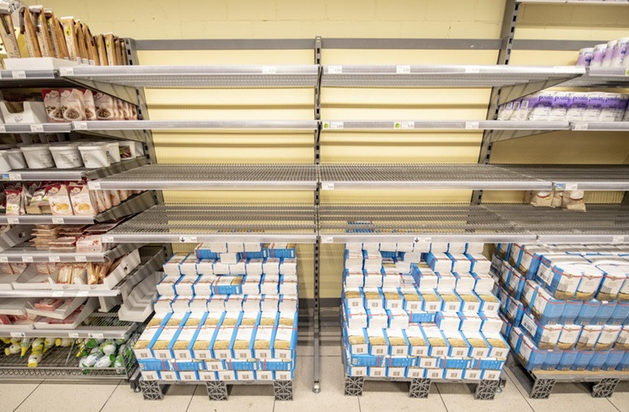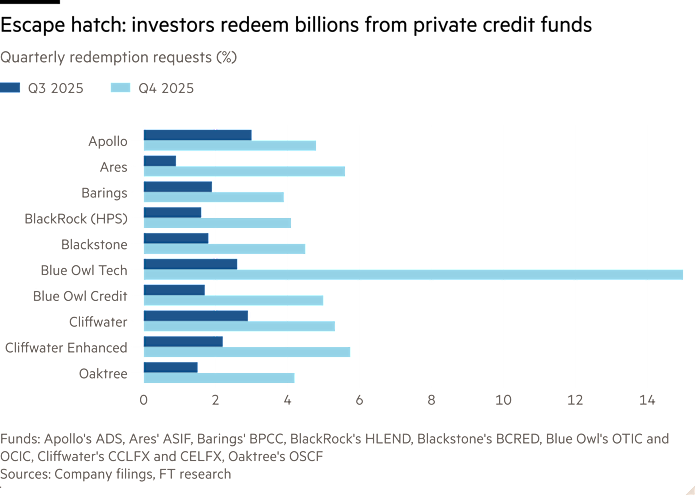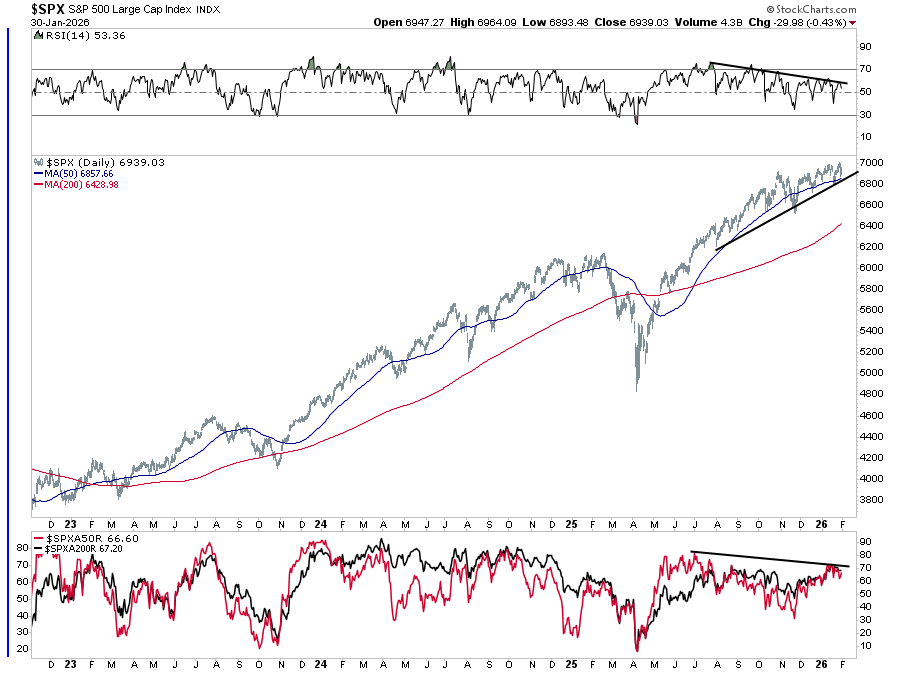
Shoppers bought large amounts of flour at the start of the coronavirus pandemic. At a Migros supermarket in Stans on March 14, 2020 (Keystone / Urs Flueeler)
During the coronavirus pandemic, panic buying has not been too problematic in Switzerland. But in previous global crises the Swiss tended to rush to the shops to stock up. Encouraged by the authorities, keeping emergency supplies remains a well-ingrained tradition for Swiss citizens.
A week after the First World War broke out, rice, coffee and tinned food disappeared from shelves of Swiss shops, forcing the government to impose food rationing. But the problem persisted, because as soon as products were made available, people tended to buy more than they needed.
At the time, hoarding was sometimes criticised publicly as anti-social behaviour. In 1941 – during the Second World War – Swiss students held demonstrations with banners stating: “Hoarding is a betrayal of the homeland”. But panic buying continued, albeit at a smaller scale owing to the rationing.
After 1945, the Federal Council (executive body) tried to further tighten state controls. The newly founded Federal Office for Civil Protection recommended each household maintain an emergency stockpile consisting of two kilogrammes of sugar, 2kg of rice, one litre of oil and 1kg of fat, which could be supplemented with pasta, flour and tinned food. The supplies had to last for two months.
During the Cold War, emergency stocks were intended to be used in the event of a nuclear attack. At the beginning of the 1950s, such stockpiles were not particularly well received by the public. But after the Soviet invasion of Hungary in 1956, the importance of stockpiles gained favour.
Ad campaigns
Adverts appeared in cinemas, at exhibitions and trade fairs to encourage people to build stockpiles, and students were taught the importance of emergency provisions.
“The aim of these campaigns was to embed the Cold War threat into the everyday lives of the Swiss. This was part of the intellectual defence of the nation aimed at reinforcing national identity and the norms and values that were thought to be Swiss,” declared historian Sibylle Marti, a specialist in the theme of stockpiling.
At the time, women were unable to vote or serve in the military. But they were still being mobilized. A 1960 brochure for emergency stockpiling showed a soldier looking after his gun, and a housewife building up emergency stocks, said Marti.
Such campaigns tended to reinforce traditional roles but they also employed modern advertising techniques. A poem competition organised by the Swiss authorities to popularise stockpiling resulted in tens of thousands of entries.
“In the 1960s American lifestyles became better known in Switzerland, opening up new possibilities for women in terms of consumption, free time and employment,” said Marti. “The idea of emergency provisions became disassociated from war and was linked instead to modern, practical lifestyles. They were viewed as a way of helping out housewives.”
The Swiss authorities, nonetheless, maintained their overall strategy towards emergency stocks.
In 1988, as the Cold War came to an end, the Swiss government launched a televised appeal for the population to build up emergency stocks. And after 9/11 attacks and US intervention in Afghanistan, the government reaffirmedexternal link the importance and relevance of emergency stockpiles. Special campaigns may be a thing of the past, but on their website the Federal Office for National Economic Supplyexternal link still encourages households to keep enough supplies for about a week.
Full story here Are you the author? Previous post See more for Next postTags: newsletter



































